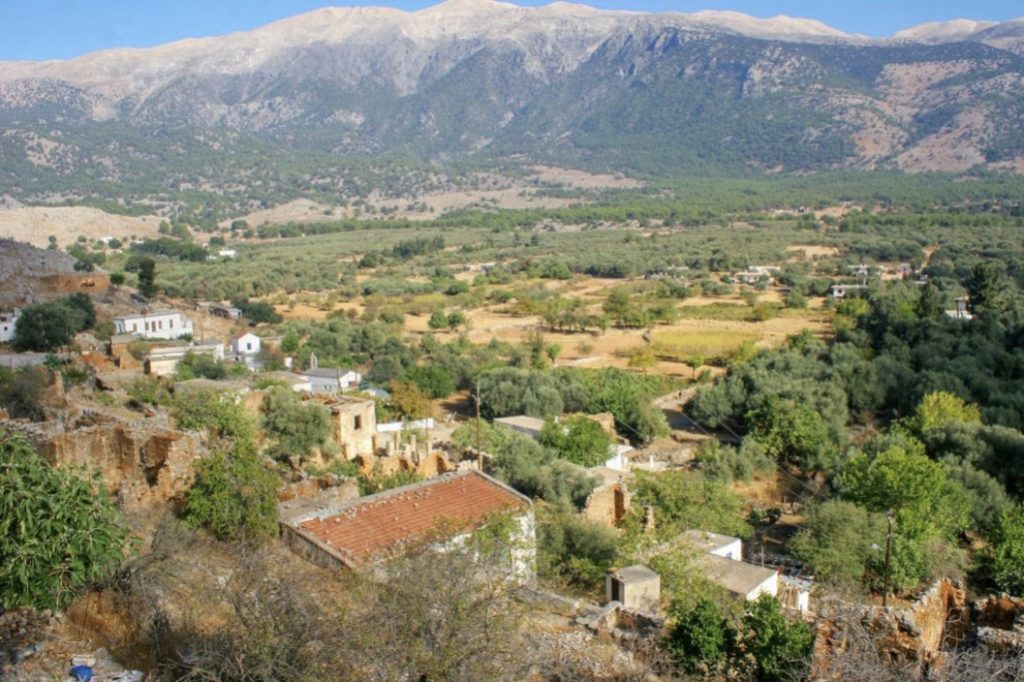
Rethymno’s rubbish. Heading for Anopoli
Yesterday in Rethymno, in a month when it never rains, there was thunder and lightening and a monsoon-like downpour lasting almost three hours. It was a bit of a surprise, emptying the beaches and streets. When it finally ended people ventured out, looking slightly bewildered, stepping over flash puddles and glancing up occasionally at the still leaden skies.
One of the many things I like about Rethymno is the pride that its people seem to share in their city’s beauty. The municipal authority plays its part, through cultural events, maintaining the many beautiful, ancient buildings and much more.
I particularly like its recent placing of sets of three waste bins at regular intervals all along the beachside promenade, which stretches for miles, as far as the eye can see. They’re clearly marked: one for plastic, one for paper and tins etc, and one whose contents are presumably destined for landfill. And there’s even a tray on top for fag ends, trillions of which are thrown into the environment every year, where they leach nicotine and heavy metals before turning into microplastic pollution. Good for them I thought.
In the days that I’ve been here it’s been encouraging to see how well-used they are, particularly the ones for plastic, of which there’s so much because everyone drinks bottled water. When I stepped out after the deluge I used the one across the road from where I’m staying.
As I walked back I saw a garbage wagon pull up beside one. The high vis jacketed driver jumped out, removing the bags from each one. I thought how much things have improved from the days when many ravines were scattered with the ubiquitous blue plastic bags into which too many people used to put their rubbish, slinging it out of sight and mind.
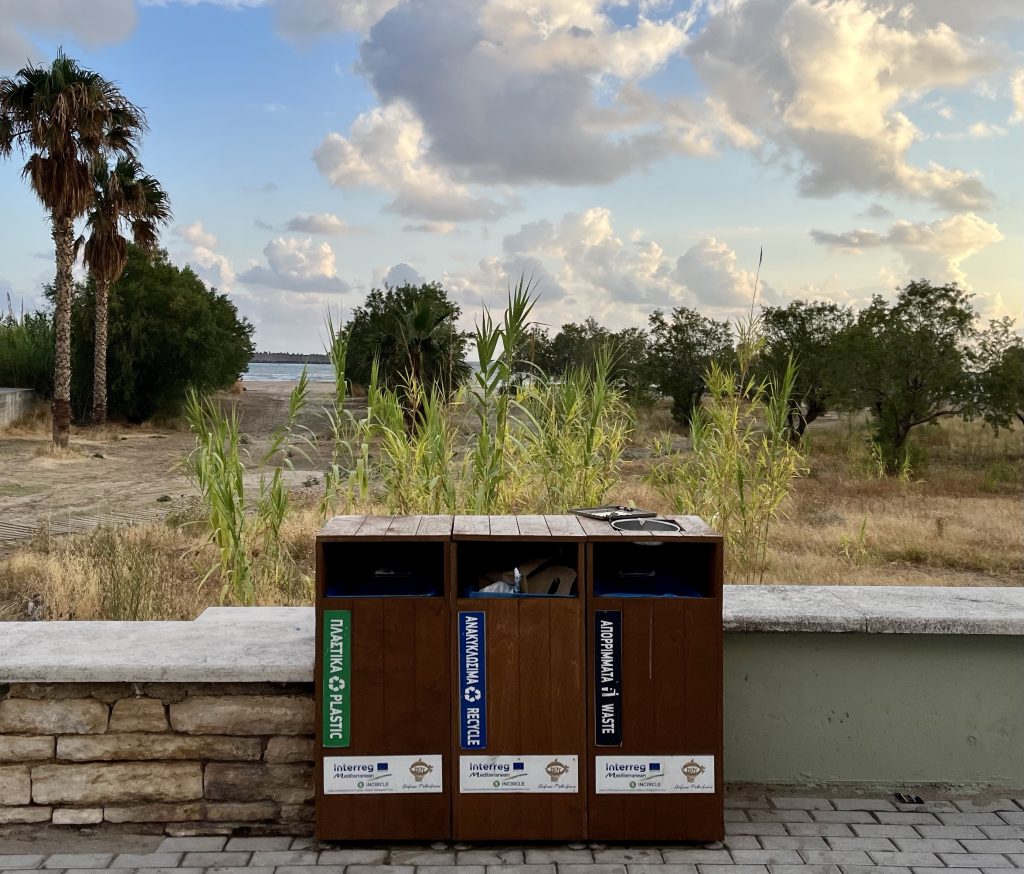
Then, to my horror, I saw the driver chuck all three into the wagon and pull a lever that crushed the lot into its stinking insides. It was all bound for landfill, mile after mile of the stuff. So I went home and googled the Mayor, one George Marinakis, who it turns out was recently Vice-President of the Administrative Board of the Association for Waste Management of Crete. Bingo! I emailed his department suggesting that they look into it. It was a sad note on which to end my time here but perhaps they’ll be able to do something about it.
On a more personal note, the next morning looks sadder still. The rains are returning overnight and look worse just as I set off on a mile long walk with my rucksack to the bus station.
I’m going back up into the White Mountains for a few days, to a village I’ve mentioned before, Anopoli, pictured at the top of this post, of which there’ll be more later. It’ll be a bit more interesting than bins, I promise, and if the forecast is right, by then the sun will be shining again.
Update
I’ve since had a very positive and encouraging reply from Rethymno’s Municipal Authority, reproduced in full below:
“We are thankful for your information. Without the concern and the precious help of our visitors and citizens we wouldn’t be able to get better and improve our municipality.
For your information, the collection service of the beach road is assigned to a contractor. After your reference, we reported the worker’s carelessness for not sorting the recyclable materials from the common garbage, to the contractor. He ensured that it will not be repeated.
The separation of plastic from the rest of the recyclable materials is in a pilot stage, in order to teach the Rethemnian citizens the procedure. In the near future our intention is to use a separate bin for each material, for its environmental waste management.”
Sunday morning
I’m sat in a kafeneío in the village of Vrisses on my way to Anopoli waiting for a bus connection. It’s been raining on and off but I was spared a soaking as I walked to the bus station this morning.
There’s a TV on the wall to which everyone’s eyes are glued. Rolling reports from all over Greece show the impact of yesterday’s deluge. Roads have been washed away, dry gullies and ravines turned into raging torrents and there are multiple shots of people wading through flooded villages and towns. I’m hoping that the winding road through the White Mountains is intact.
Anopoli
I got here in the end.
Eleni’s sons, Sifis and Nikos, run a taxi service from Sfakia, where I finally got off the bus. They have a website with pictures of Mercedes people carriers and all kinds of swanky, high end vehicles. They’d offered to take me on the final stretch, the long and winding road to Anopoli, and I’d sent them a message that morning to fix things up.
When I arrived their taxi had a puncture and they were trying to get the tyre repaired or replaced. It’s not so easy in a place like Sfakia; there isn’t a Kwikfit or Halfords close by. I thought better of asking if we could go in one of the other cars in their fleet. I’d a feeling that perhaps there weren’t any and the brothers seemed a little uneasy, as if expecting the question. I might have been wrong. (I was completely wrong, as I’ve since found out. Nikos and Sifis have several vehicles).
And then along came Phillipos, who they introduced as their friend. The awkward moment was averted, lost in a swirl of greetings and a muddle of Greek and English negotiation. A few minutes later, off we went in his van.
Phillipos spoke perfect English, having studied industrial design in Birmingham, where I was born, so we weren’t short of things to talk about. His story was typical of many I’ve heard from the worst years of Greece’s debt crisis. He’d had a successful business in Thessaloniki that went bust overnight and within a short space of time the bailiffs came knocking and his home was repossessed. A while later his relationship fell apart.
With nothing left he came down to Sfakia to find work, where he/they used to come on holiday, and now does occasional driving jobs for Sifis and Nikos. He’s remarkably philosophical about his plight, although he did say ‘fuck it’ a lot, but also that he likes what he’s doing now and what he described as his now simple life.
At one point he asked about family and I told him about mine, including how we’d lost Pip. We talked for a while about how often in life you can’t change what happens to you, but both agreed that, even so, we have a choice in the way we respond. As Pip had said when told that nothing could be done, ‘it is what it is’. It doesn’t necessarily make it any easier but, ultimately, it is what it is and you have to find a way to live. It seemed that we both had, although in different ways and very different circumstances. But fuck it too.
A second coincidence to Birmingham was that he lives in Eleni and Pantelis’s old house, where I, Jim and Brigitte lived when we worked here in the 70s. I suspect that it might have been spruced up a bit since. All we had was a cold tap and mattresses on the floor, although a sea view to die for when we opened the shutters in the morning. It suited us just fine at the time (pic below)
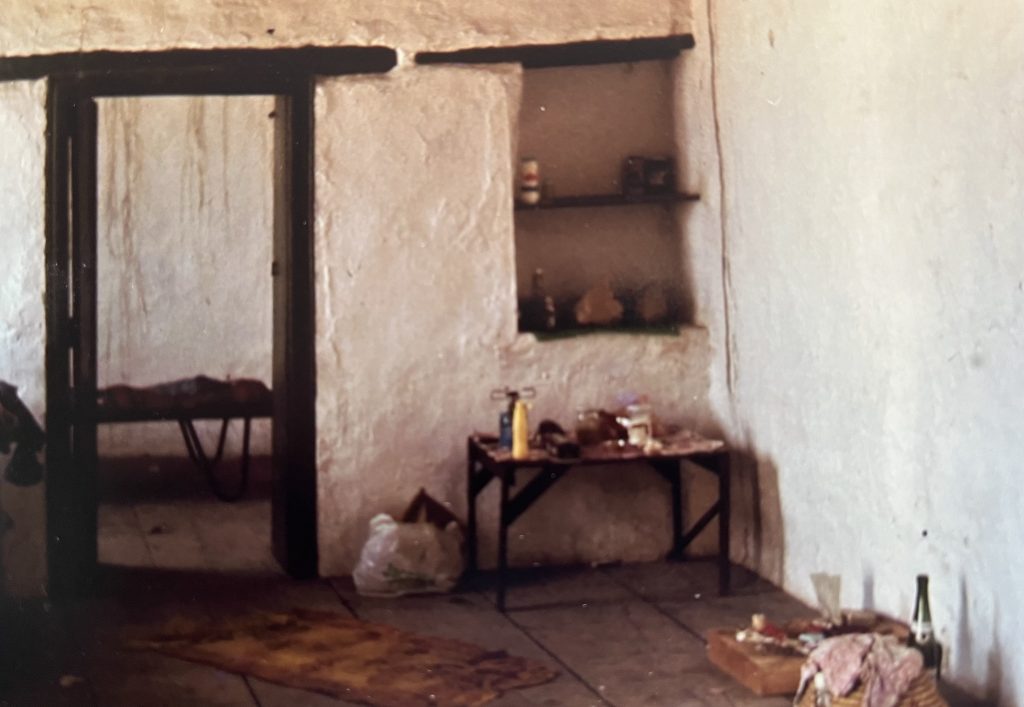
We talked almost all way through the twists and turns of the steep climb to Anopolis. I’d shown him an old picture of the brothers’ father, Pantelis, who he’d never met and told him how he’d died fifteen years ago. For a while we drove in silence, and a bit slower as we both looked over the roadside barriers at the steep drops behind each one. Eventually Phillipos said another ‘fuck it’ and how it must have been a terrible way to go, and we were still chatting as we pulled up in Anopoli’s square and said our goodbyes.
It’s evidently more prosperous than when I was last here but Anopoli hasn’t really changed a great deal. There are barely any tourists, just a handful of walkers, and it’s wonderfully peaceful, and cooler to boot. I went for a short walk this afternoon, one of several possible from here. It took me through the village to a track that led up to the church of St Catherine from which there are breathtaking views.
Here are a few pics
More later – my battery’s about to die …..
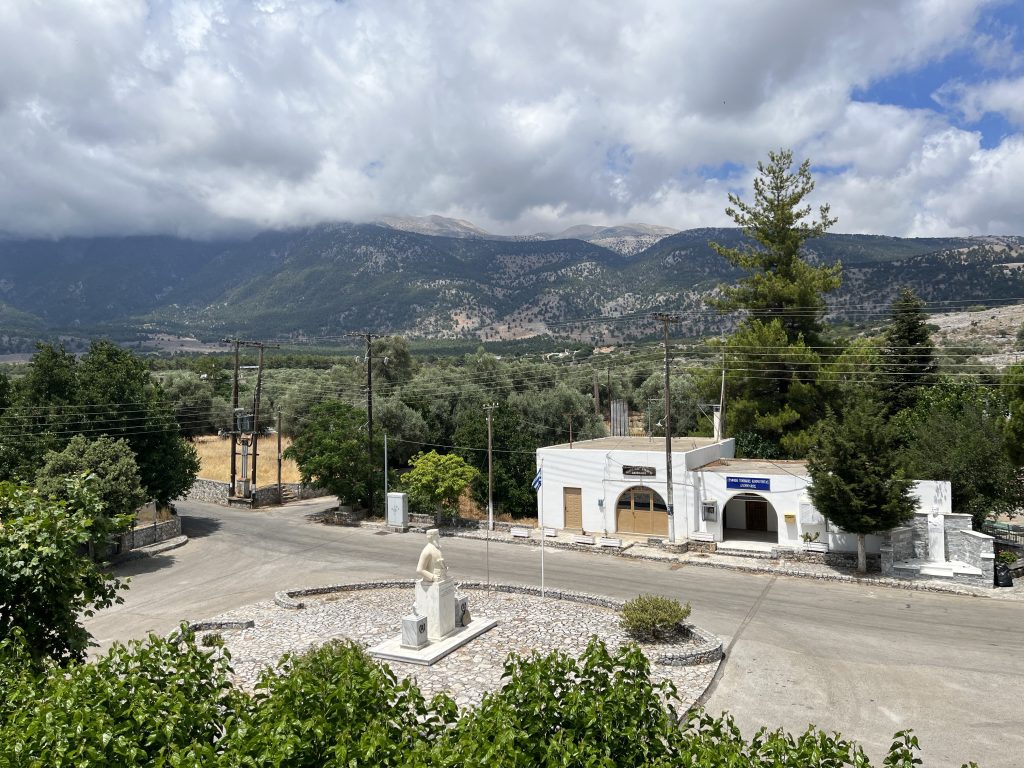
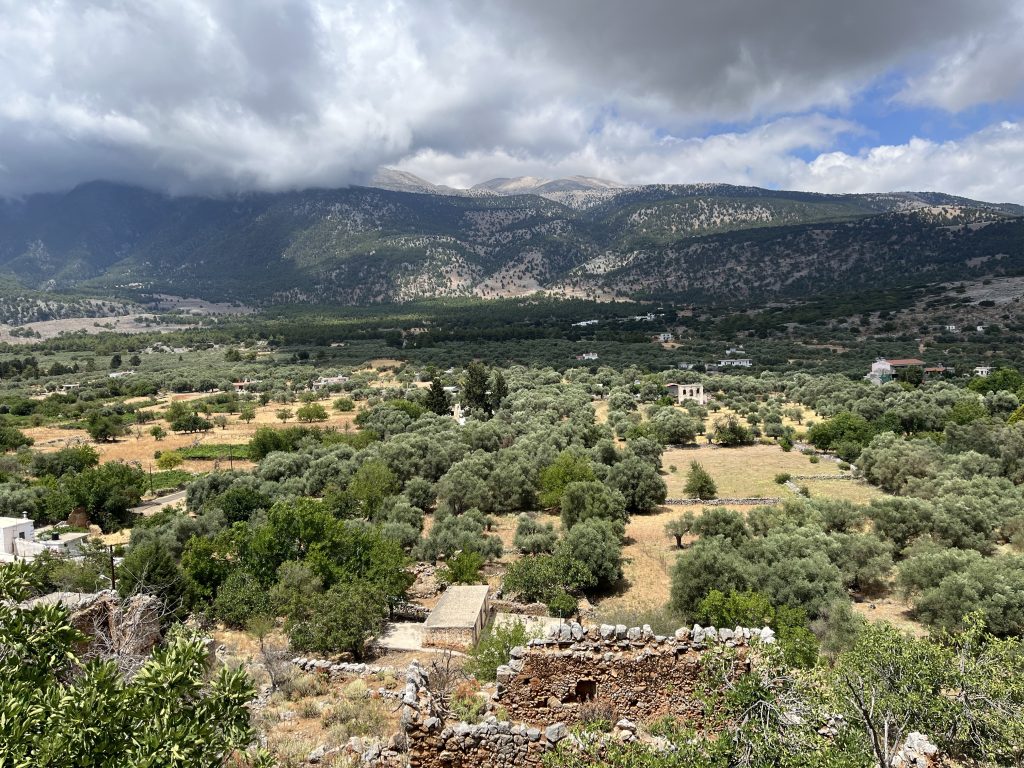
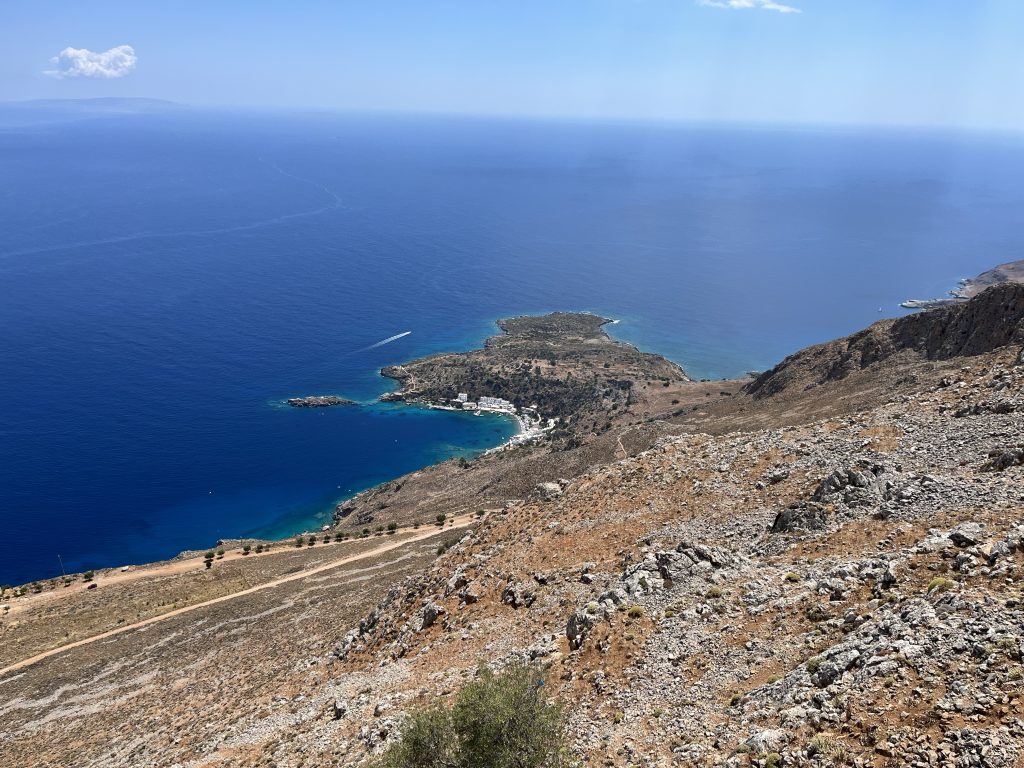
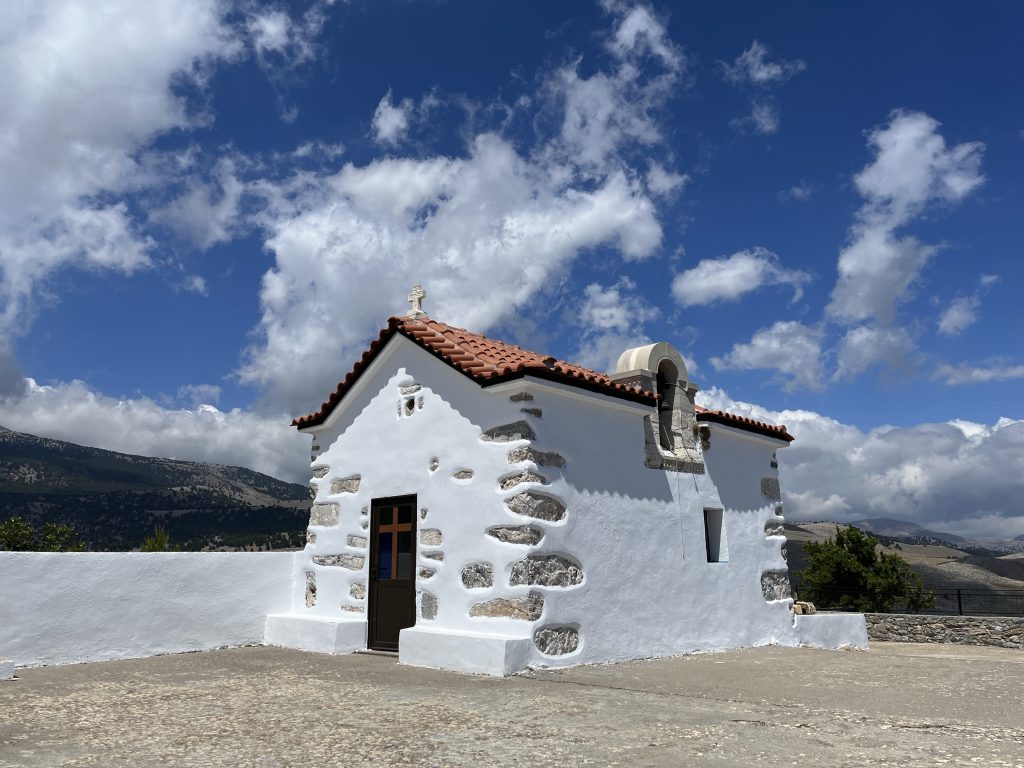
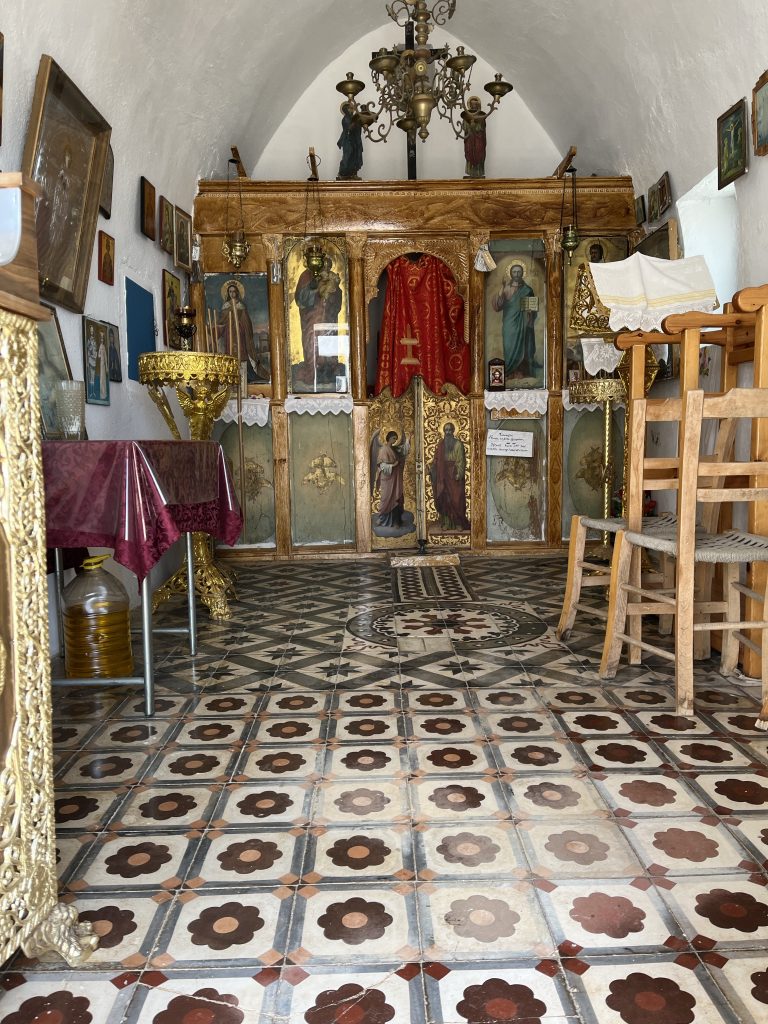
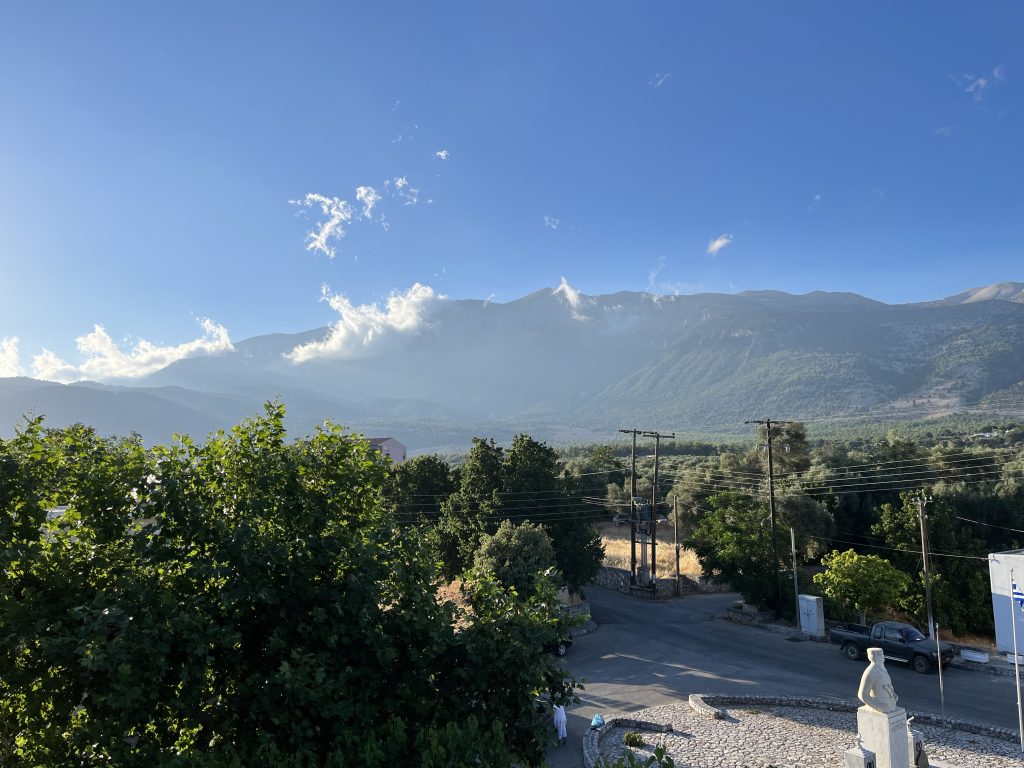
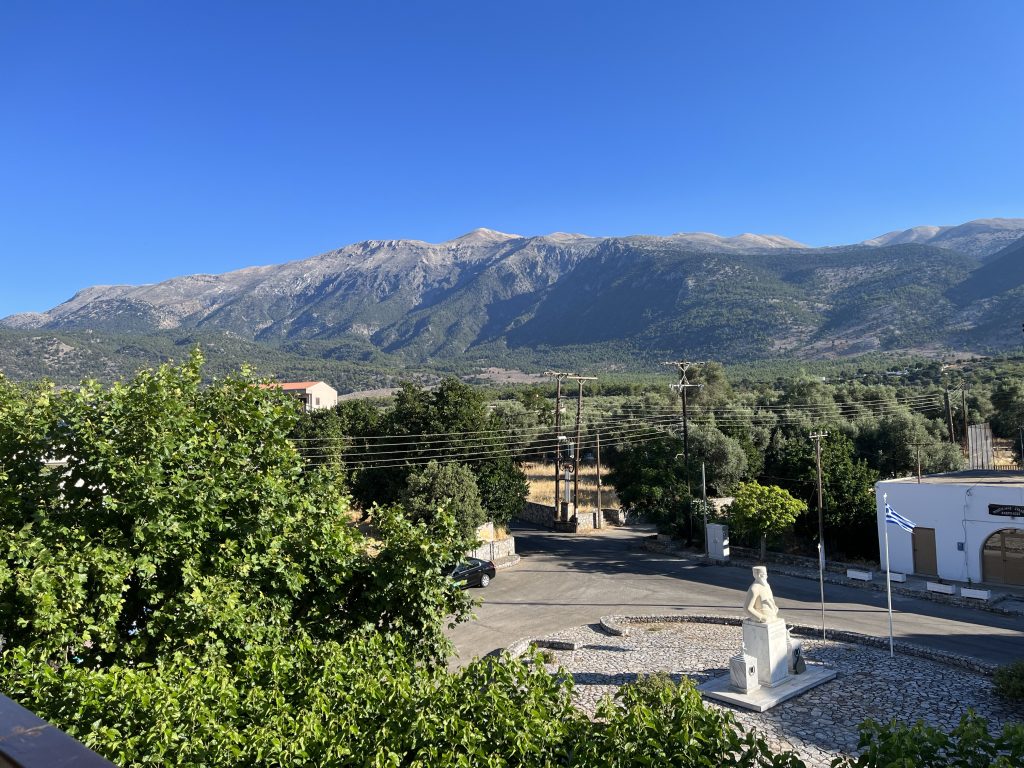
What a shocking or not so shocking tale. Shame you didn’t get a video of the rubbish collection. What a farce- although I’m pretty sure a lot of London recycling goes the same way as most of it is ‘spoiled’ through either lack of awareness or concern. Good for you writing to the mayor (in Greek?). Let’s hope you get a reply.
In English. On the trail of trying to find out who he was I read a piece he’d written in perfect English. My email probably just went to one of of his people at the town hall anyway, and might not reach him, but I guess I’ll find out next week. 🤞
I’ve since received a very helpful and encouraging reply, which I’ve reproduced in full beneath my original post. 👆
Good news and hats off for making them aware of it. Sounds like they want to do the right thing.
We are just leaving Greece after a week in south Ionia islands- very hot and agree re bins- what a terrible mess and good for you for contacting the mayor! 🤞🏼😎x
Hope you had a lovely time. So near! Well a bit. Hoping to join you for the Zoom thing on the 13th, Wifi permitting x